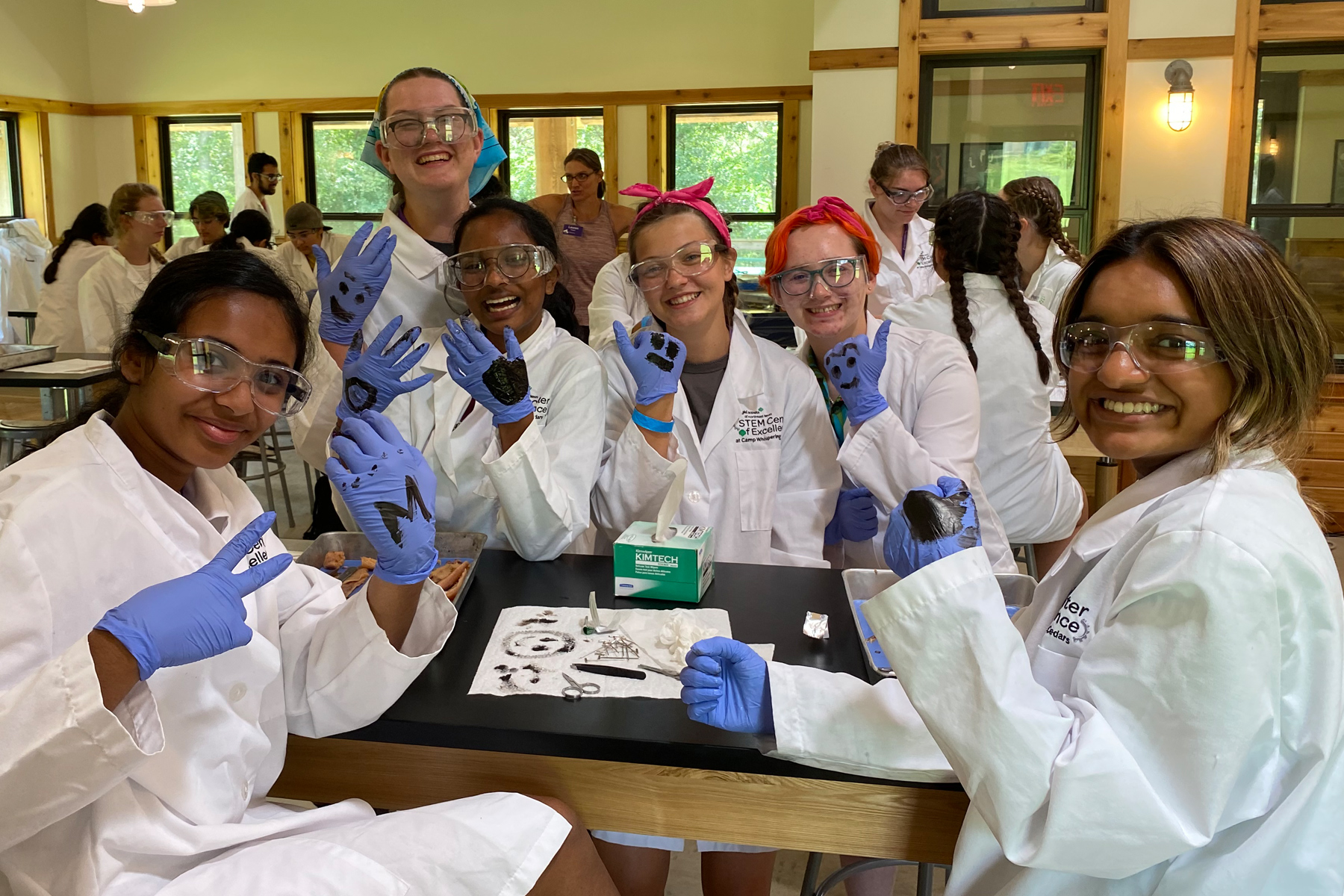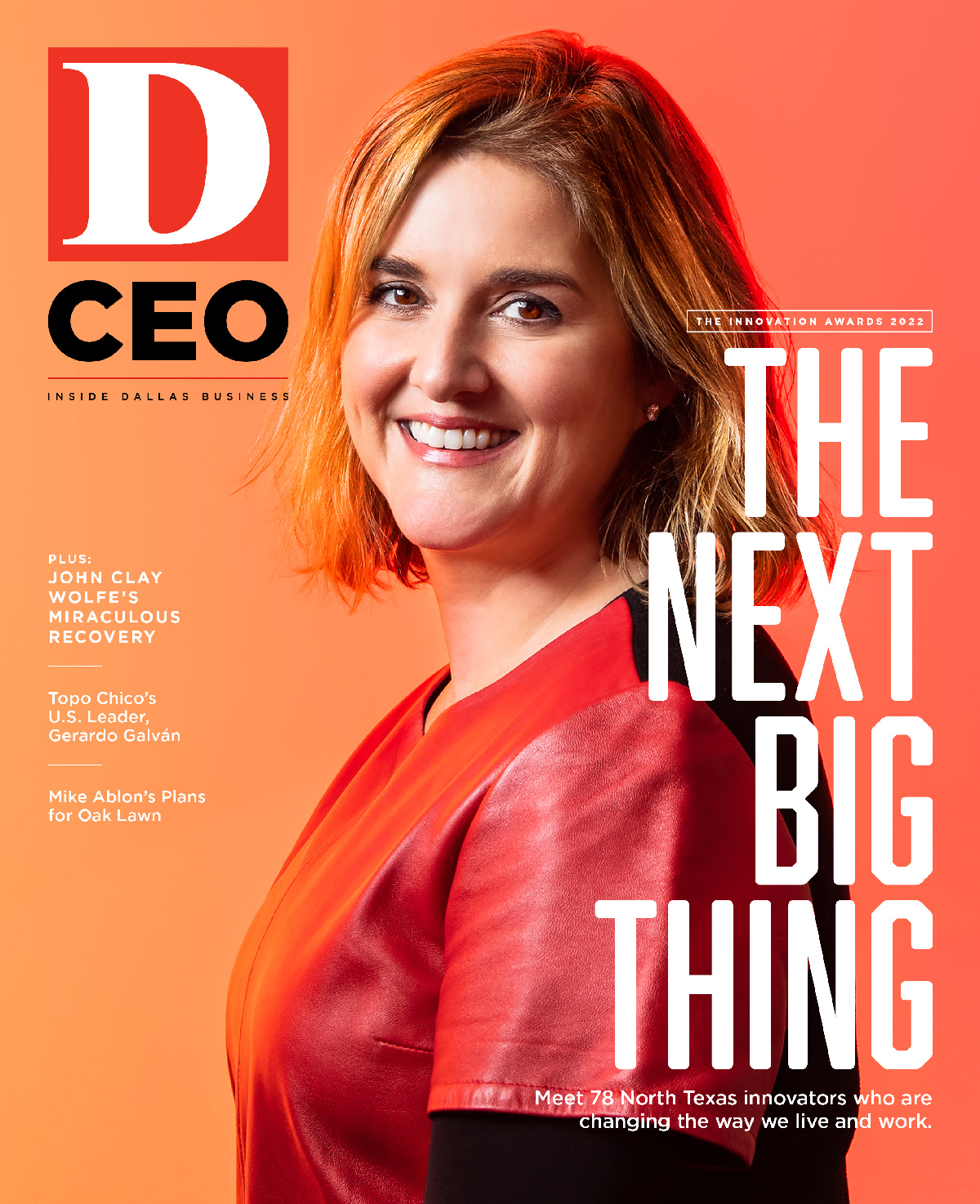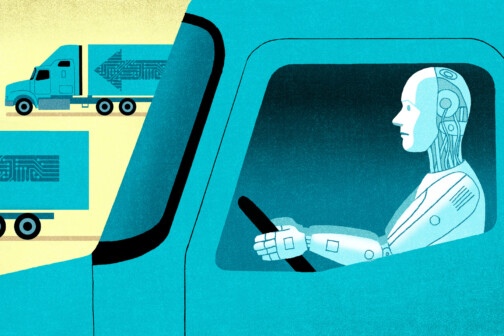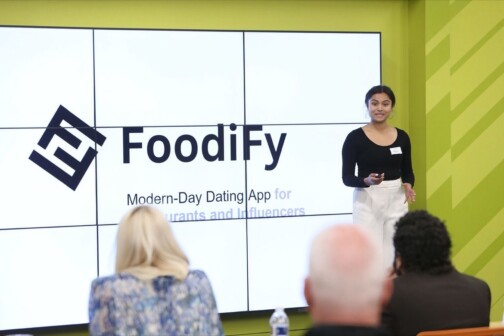When it comes to women in STEM careers, the numbers tell the story. Tech jobs—AI, machine learning, data science, cyber security, software programming, and technology consulting to name a few—continue to outpace other occupations nationwide.
Even so, women are still facing gender discrimination in the workplace. Women occupy approximately 28% of the STEM workforce and, on average, they make 83 cents for every dollar that is earned by their male counterparts. At first glance, the numbers may seem disappointing, but they are consistently improving. Progress is being made, and this is due in large part to companies that have made it a priority to attract and promote women in technology.
According to a recent study by SmartAsset, the top cities for women in tech are Arlington, Virginia; Baltimore, Maryland; and Washington, D.C. Dallas comes in at No. 61 of 63 cities in the study. However, Dallas’ suburbs have impressive rankings on the list, with Irving at No. 42, Plano at No. 27, and Frisco tied with Oakland, California at No. 22. Industry leaders are seeing a slow, but positive change in Dallas. “I have found that Dallas-based organizations are being intentional in including women in STEM in their workforce in ways that we have not seen historically,” says Marissa Horne, vice president of tech strategy and governance at Capital One. “Dallas has a unique opportunity to become a leading innovation hub across STEM domains, especially technology. Leveraging the power of private enterprise and university partnerships, this city has the ingredients to elevate its technology ecosystem. As this occurs and Dallas moves further along the innovation curve, women must play an integral role in bringing this reality to life.”
Katie Mills, treasurer of the Dallas Society of Women Engineers, says that in the past few years, her organization has noticed more companies publishing their diversity goals and openly pushing to have more women in upper management, particularly in technology fields. “We see those companies not only coming out with stated goals, but with metrics, plans, check points, and a path to meet those goals,” she says. “It’s not only about gender equality on corporate boards but taking steps to support women early in their careers so these women remain in the STEM workforce and provide these companies with a pool of talent to draw from when looking for leadership positions.”
Greater equity in the workplace begins with planting the seeds to pursue STEM early—usually in elementary school. Hattie Hill, CEO president of the T.D. Jakes Foundation, says there is systemic bias within the U.S. education system that pushes girls away from science and math, even when they show an interest. Plus, there are few female STEM role models for girls in elementary through college. The foundation’s STEAM Academy believes that to prepare all students for the changing workforce, they need to learn more than technical skills. The arts help to spark creativity within STEM disciplines and are a productive way to combine a love of the arts with a background in the sciences. Recently, the STEAM Academy partnered with Dallas Summer Musicals, inviting nearly 1,500 DISD students and teachers to see the Broadway musical, Hamilton. This was a great way to showcase the kind of technology required behind the scenes to create such a stunning production. “It illustrated to young people the various job possibilities they can have in the future,” Hill says. “Right now, when it comes to bridging the gap and job opportunities, students can’t be what they don’t see. Our programs invited students to have an opportunity to experience STEAM in a specific way.”
Hill says one way to get more girls to pursue a career in STEM is by having successful role models. “When they see women who are doing this type of work in a male-dominated industry, it can eliminate the innate biases that exist,” she says. “Progress is being made by eliminating some of these biases, providing role models, and giving them experiences and exposure to jobs they may have never considered.”
Another local opportunity where girls have opportunity to pursue STEM-related interests is Girl Scouts of Northeast Texas’ STEM Center of Excellence, a 92-acre, $15 million hub of inspiration. A sprawling living laboratory in South Dallas, it’s the first of its kind in the United States and provides year-round opportunities in robotics, computer coding, botany, chemistry, and more. Through the STEM Center of Excellence, Girl Scouts of Northeast Texas is feeding the STEM workforce pipeline to meet the urgent need for female voices, engagement, and leadership in the fastest growing sector of the U.S. economy.
Shane Woods, senior director of The STEM Center, was a middle school teacher before taking on her role at Girl Scouts of Northeast Texas. “I know the importance of building their excitement and interest in STEM early,” she says. “By the time girls reach middle school, many have been turned off to what is possible through a STEM education, either due to bad experience in a STEM subject, overhearing parents say they were never good at math or science, or believing that boys are just inherently better at it.”
Woods says part of the mission of the STEM Center is to foster and help continue the curiosity that kids have early on about how things work and problem solving. “We provide those opportunities for girls and help them build a STEM identity,” she says. “More importantly, we want them to believe they can do it. We want them to see all the ways STEM touches different careers and industries. The menu of options so much bigger than they think. We want girls in North Texas to become critical thinkers, problem solvers, and leaders who have the intrinsic motivation to do more. STEM allows girls the opportunity to become someone who can contribute to society in a thoughtful and meaningful way.”
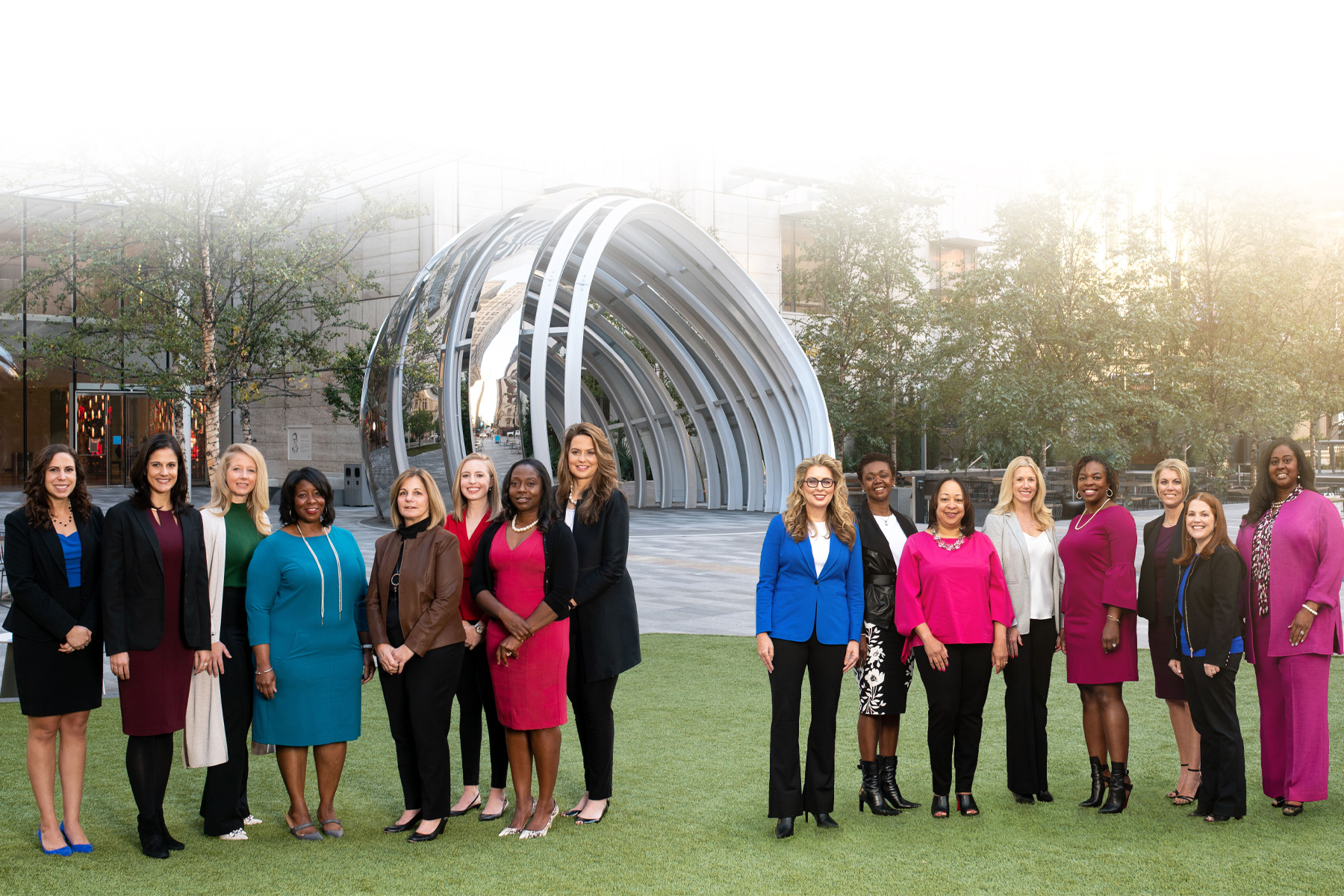
AT&T
From employing women telephone operators to improving industry representation, AT&T has a long history of commitment to gender equality. Some of the world’s finest inventions and innovations, including the creation of fiber optic cables and caller ID, have come from the ingenuity and contributions from AT&T women in STEM. More than 13,600 AT&T women from diverse backgrounds are working in STEM-related roles, with more than 1,100 earned patents under their belts. Nearly 40 women were recognized for their achievements and contributions during the Women of Color STEM Conference. All AT&T employees believe in the power of visibility and impact across the market inclusive of all communities—if you can see it, you can be it—taking their knowledge outside the walls of AT&T to mentor and shape the next generation of women STEM leaders by supporting programs such as Girls Who Code, Black Girls Code, Girl Scouts USA, Girls Inc., and Techbridge Girls. A more diverse workplace is simply better—for shareholders, customers, teams, partners, and communities. “It is imperative we use our resources and platforms to lead by example, create opportunities, foster innovation, and ultimately fortify the groundwork and foundation for many more future female leaders in STEM,” says Anne Chow, CEO of AT&T Business. “It is critical that we continue to cultivate a culture of innovation, inspiration, and impact for girls and women in our community so they can be empowered by their education to make a positive impact on society.”
Website | Instagram | LinkedIn
Capital One
Marissa Horne, Vice President of Tech Strategy and Governance
Diversity in the executive population is a top priority at Capital One, and efforts to propel women through the corporate ranks and into influential roles are coming to fruition. Women represent 50% of the workforce at Capital One, and the company continues to invest in programs and policies that provide opportunities for women to expand professionally and thrive personally.
Examples within Capital One include the Women in Tech Business Resource Group that creates a space for women to see and reach leadership opportunities in tech, the Equality Allies program to raise awareness of the inequalities that women and underrepresented groups face in tech, and the empowHER Business Resource Group that helps women enter management. Recognizing the challenges women face in the technology industry, Capital One established a Women in Tech program in 2015, focused on helping elevate and support women technologists through mentoring, speaker training, skill building, and community partnerships. This led to the launch of Blacks in Tech and Hispanics in Tech initiatives. Capital One has formed deep partnerships with DFW*Alliance of Technology and Women, National Society of Black Engineers, Per Scholas, Year Up, Women Who Code, Black Girls Code, Anita Borg Institute, IT Senior Management Forum, and the Hispanic IT Executive Council. Local partnerships include WEDallas, Girls Inc., InnovateHer, Bot Camp, and Girl Scouting in a School Day Dallas.
Capital One understands that having more women in tech means encouraging girls in STEM at an early age. “Programs that connect the dots between high school curricula and professional aspirations are needed to demystify how a girl moves from her academic studies to life and beyond,” says Marissa Horne, vice president of tech strategy and governance. “While we’ve made progress, we have more to do. We will continue to invest in efforts to improve representation and to create a culture where every individual is respected, heard, and feels comfortable bringing their whole selves to the workplace.”
Website | Instagram | LinkedIn

Hilti North America
Hilti North America is a global leader in products, services, and software supporting the professional construction industry. Women leading in STEM careers at Hilti North America make up an important part of who the company is today—and its future. These outstanding professionals represent 650 Hilti North America team members in Texas, all committed to bringing more young women into technical careers and mentoring for the future. From being on jobsites to engineering offices and from just starting an engineering career to the C-suite, Hilti North America’s women in STEM fields are making a strong contribution to the company and to society. Many of Hilti’s women team members volunteer at the Girls Scouts STEM Center of Excellence in South Dallas using donated Hilti North America tools to mentor girls through hands-on experiences. Hilti North America annually hosts Girls in Engineering Day at its Plano headquarters for students from DISD’s Marsh Preparatory Academy. Through support of the Sci Tech Discovery Center’s mobile STEM lab, Hilti North America is providing access to underserved communities by bringing STEM to neighborhoods across North Texas.
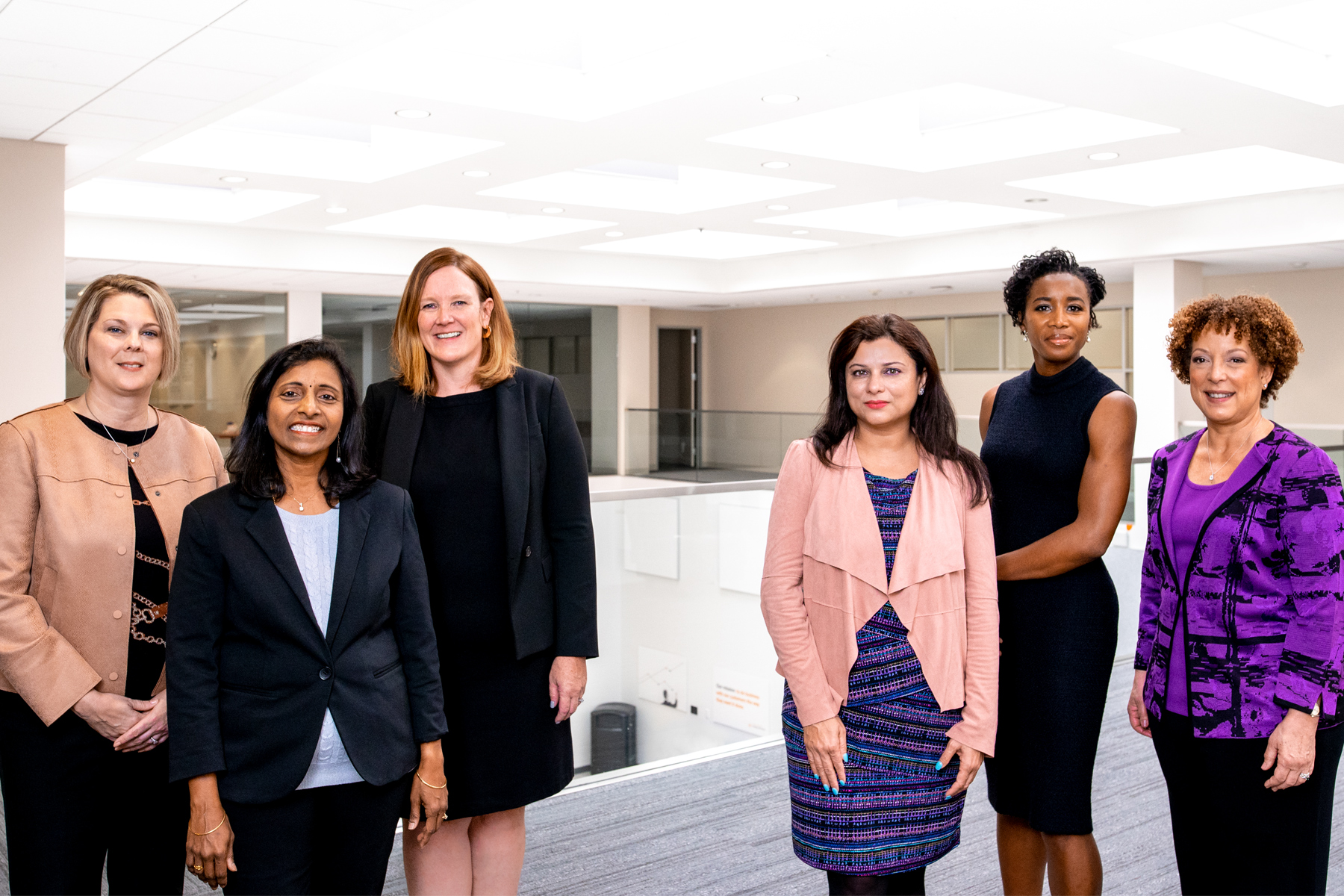
Thomson Reuters
Thomson Reuters is one of the world’s most trusted providers of answers, helping professionals make confident decisions and run better businesses. Thomson Reuters’ customers operate in complex arenas that move society forward and face increasing complexity as regulation and technology disrupt every industry. Thomson Reuters has made great strides toward increasing its gender diversity, particularly within leadership roles. Thomson Reuters aspires to have 45% representation of women in senior leadership throughout its company by the end of 2022. In addition to partnering with nonprofits to create programming and opportunities that encourage girls to become involved in STEM programs, the company also partners with AnitaB.org, a nonprofit social enterprise inciting a movement to achieve intersectional equity in the global technical workforce by 2025. AnitaB.org/365 programs empower women and under-tapped communities in technical fields, guide the organizations that employ them, and support the academic institutions training the next generation. In partnership with AnitaB.org, Thomson Reuters sponsors the annual Grace Hopper Celebration, the largest conference in the world for women in technology. “We have sponsored it since its inception because our leadership understood it was imperative to partner with an organization that had audacious, but realistic goals on how to have more women in STEM roles,” says Gabrielle Madison, director of public relations. In addition to these initiatives, Thomson Reuters also partners with DFW Alliance of Technology and Women and Girls Make Games to help engage and develop girls and young women in the community who want to pursue education and careers in STEM. “Our goal is for girls, particularly in low-income areas, to have exposure to STEM opportunities and to see other women who look like them succeed,” Madison says. “We want to open up a space in the world they haven’t been able to access until now.”
Website | Instagram | LinkedIn
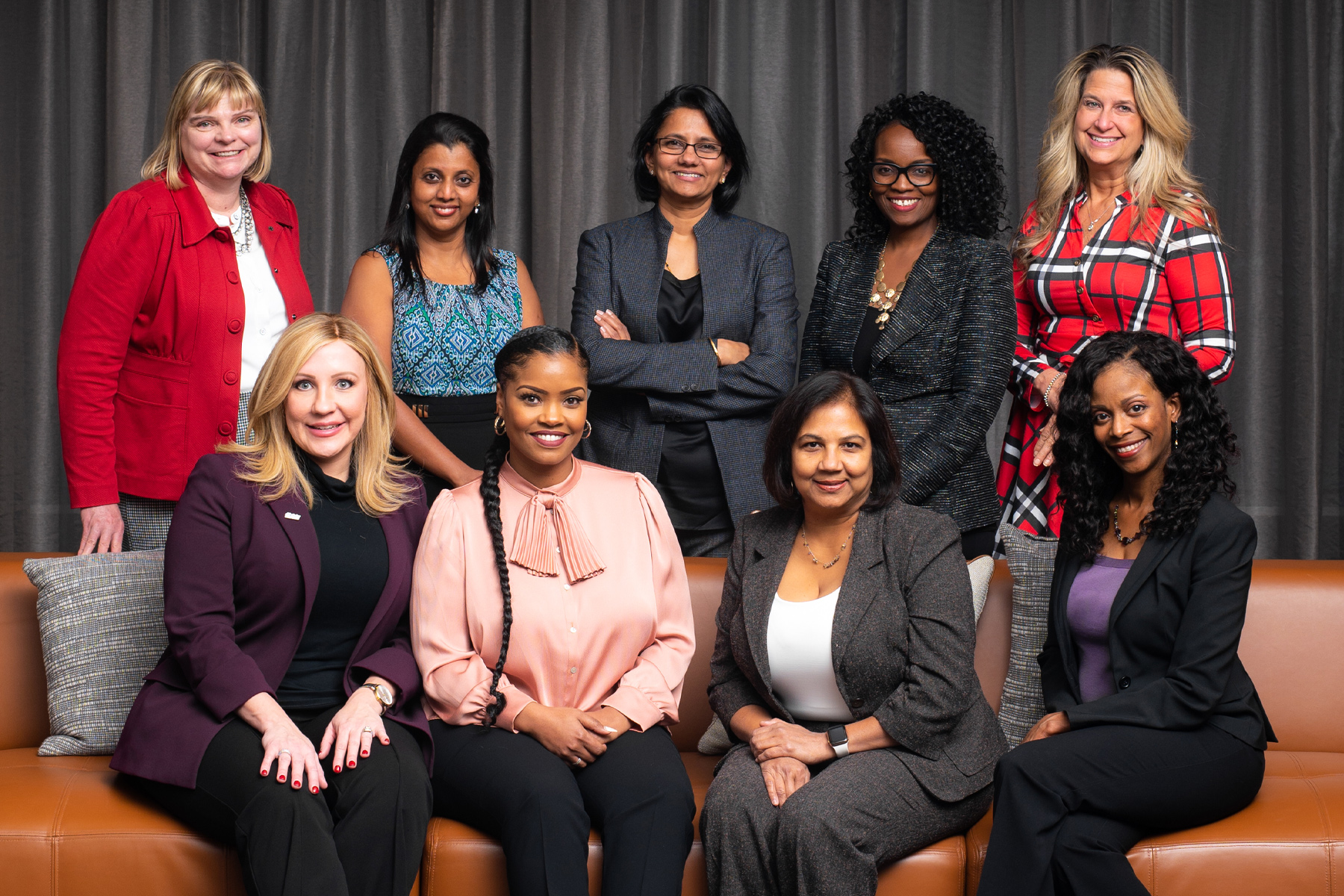
DFW Alliance of Technology and Women
Two things need to happen for workplace equity in STEM to occur. First, girls need to be exposed to STEM early. Second, women in STEM need to be encouraged to stay in the field and pursue leadership opportunities. The road to STEM equity in Dallas begins with the DFW Alliance of Technology and Women. DFW*ATW is a vital, nonprofit organization committed to increasing the number of women in leadership and strengthening the pipeline of girls entering technology fields. What began 20 years ago as a small group of women at TI has grown to more than 400 women and men in STEM leadership positions throughout Dallas-Fort Worth and beyond. They recognize that growing the field means starting early and founded iLEADinSTEM, an outreach program that provides STEM opportunities for female students. DFW*ATW hosts two major events, the Women in Tech Summit – InnoTech conference and the annual fundraiser Executive Leadership Forum. The nonprofit also develops leadership programs, such as Women3 for mid-career, and creates and sponsors programs, such as ATW Ignite, to reskill and certify women re-entering the workforce. DFW*ATW places an emphasis on diversity in the workplace, on boards, and in the community. “We have been conscious about diversity in our board and Advisory Council structure,” says Shanthi Rajaram, president. “We can’t be an example if we aren’t practicing it ourselves.”
Website | Instagram | LinkedIn
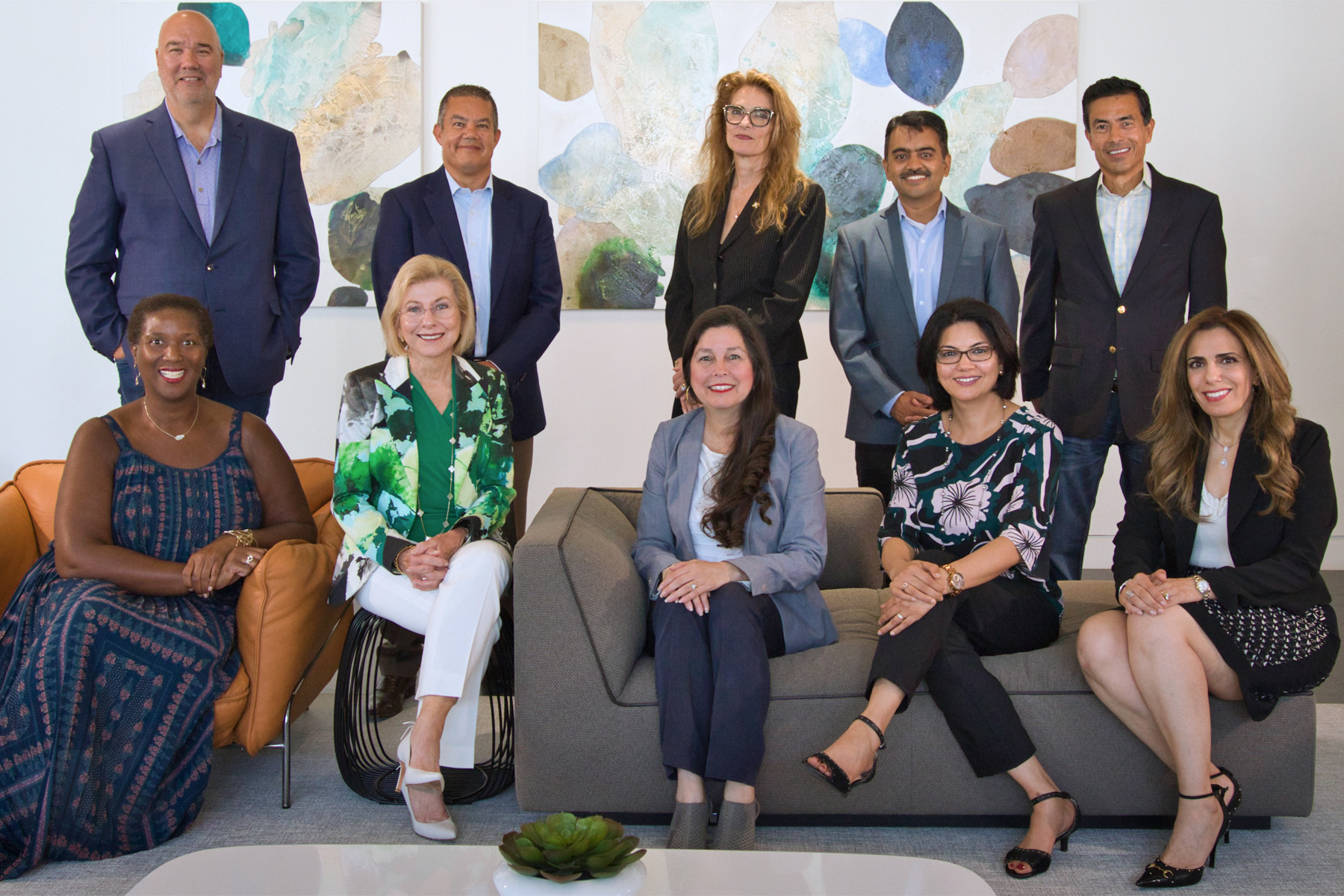
DFW*ATW Advisory Council
DFW*ATW is a vital nonprofit organization committed to increasing the number of women in STEM leadership and strengthening the pipeline of girls entering technology fields. Guiding the group’s 400-plus members and its 14-member board of directors is the distinguished DFW*ATW Advisory Council. Several years ago, Valerie Freeman, council chair, led the charge to reconstitute the Advisory Council, inviting high-level CIOs, CTOs, and CEOs to become members. The goal was to assemble a diverse group of leaders who could assist with the nonprofit’s strategy by generating fundraising opportunities and providing overall support.
“Their expertise and contributions have been phenomenal,” Freeman says. “DFW*ATW, the largest group for women in technology in Dallas, wasn’t going to grow without infrastructure in place. Today, DFW*ATW continues to grow with more resources to fulfill its mission in an impactful way.”
DFW*ATW is primarily operated by volunteers. The board of directors recently hired an executive director, Sabrina Chesney, who has been instrumental in coordinating all of the programs, fundraising, and membership activities of ATW.
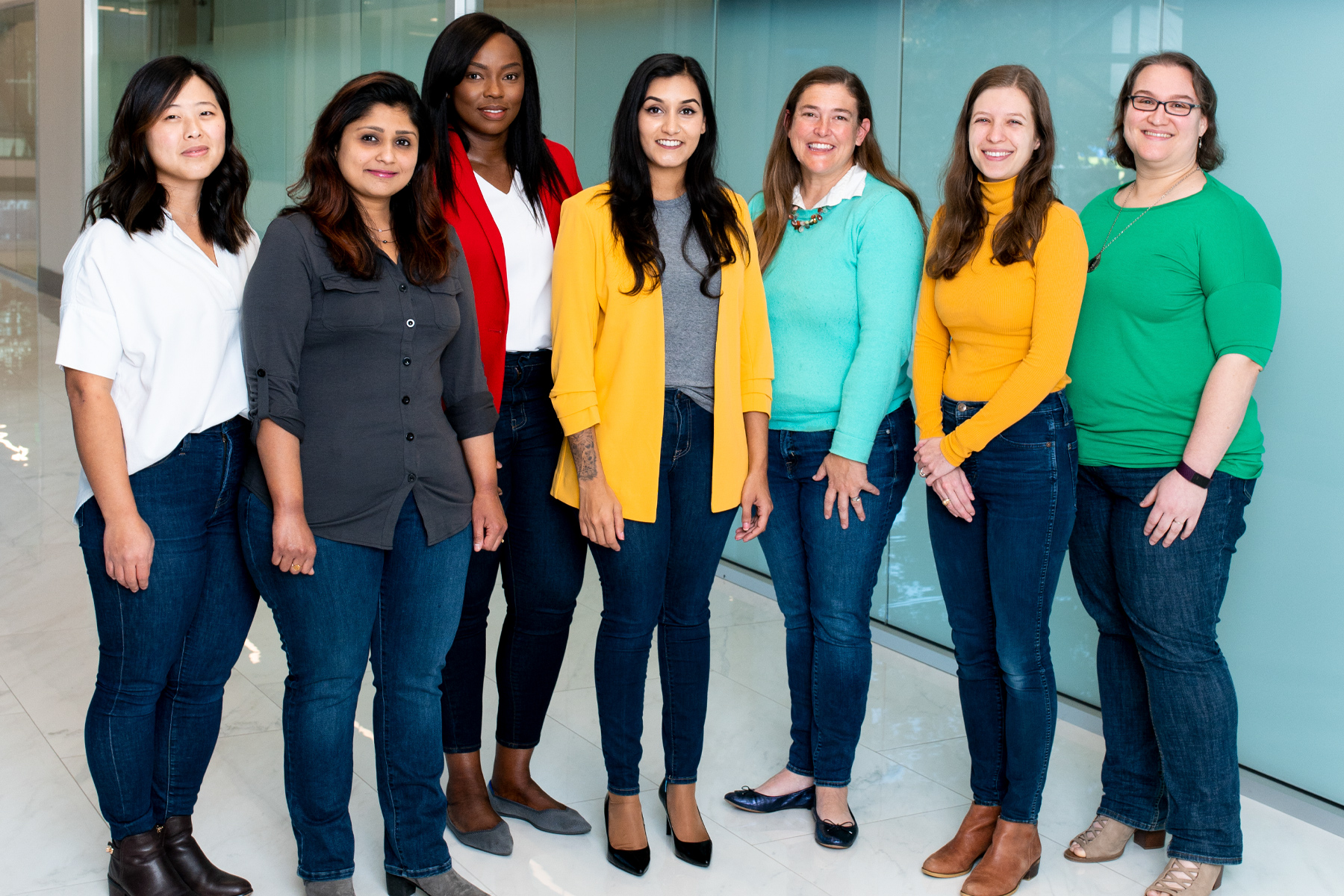
Slalom
Slalom is an unrivaled stand out when it comes to supporting women in STEM in the workplace and beyond. Slalom has multiple employee resource groups, including Women in Tech, to help build inclusivity, celebrate diversity, and foster belonging. This group develops Slalom women’s technical and business skills, creates an inclusive and thriving community of technical thought leaders, and fosters external relationships with partners and organizations such as Girls Who Code and Black Girls Code. They also work to influence and support the pipeline of school-age girls in the STEM field and increase representation of women in technology. Amy Idowu, director of technology at Slalom, was inspired to lead the Dallas chapter of Women In Tech after learning about gender parity in AWS certifications across the company. Slalom launched Project ADA with AWS. Project ADA was named after Ada Lovelace, the first known computer programmer, and created to foster gender parity within Slalom and increase certifications held by women to 50%. This signifies how Slalom is working every day to change history—together.
Website | Instagram | LinkedIn
Pursue Your Passion: Advice from STEM Trailblazers and Leaders
Katie Mills, Dallas Society of Women Engineers
“Be diligent and learn whatever you can. There is a new approach in this post-pandemic world to the way we work. There will be some huge opportunities in STEM to work from home or with hybrid models. You can work in a way that will make sense for your family.” —Katie Mills, Dallas Society of Women Engineers
Shane Woods, Girl Scouts of Northeast Texas
“You are needed. STEM helps people in society. We need your mind, your voice, and your passion to move the needle. There are so many jobs in STEM that haven’t even been established yet. You are sowing the seeds of what STEM can be in the future.” —Shane Woods, Girl Scouts of Northeast Texas
Amy Idowu, Slalom
“Lean into the subject you love. Keep an open mind. If you enjoy doing STEM, participate in it.” —Amy Idowu, Slalom
Shanthi Rajaram, DFW*ATW
“If we want more women in tech, then we need more girls in STEM. Girls need to see these women at the forefront so they know they can do this, too.” —Shanthi Rajaram, DFW*ATW
Gabrielle Madison, Thomson Reuters
“There will always be adversity, but on the other end of adversity is your purpose—the fulfillment you have been looking for.” —Gabrielle Madison, Thomson Reuters
Marissa Horne, Capital One
“Fight against the forces that tell you that math is hard, or science isn’t for girls. Instead, lean into the classes that push you to think differently, to solve problems in ways that you haven’t before, and that stretch your creativity.” —Marissa Horne, Capital One
A. Martina McIsaac, Hilti North America
“Sponsorship and mentoring programs for women, especially in STEM careers, are critical in supporting growth. Companies need to help emerging leaders develop a personal growth plan, assess strengths and biases, and learn strategies to maximize our potential.” —A. Martina McIsaac, Hilti North America
Anne Chow, AT&T Business
“The next inventor and innovator could come through organizations like Girls Scouts USA, Black Girls Code, and Girls Who Code.” —Anne Chow, AT&T Business
Signup for D Exclusive
Author



